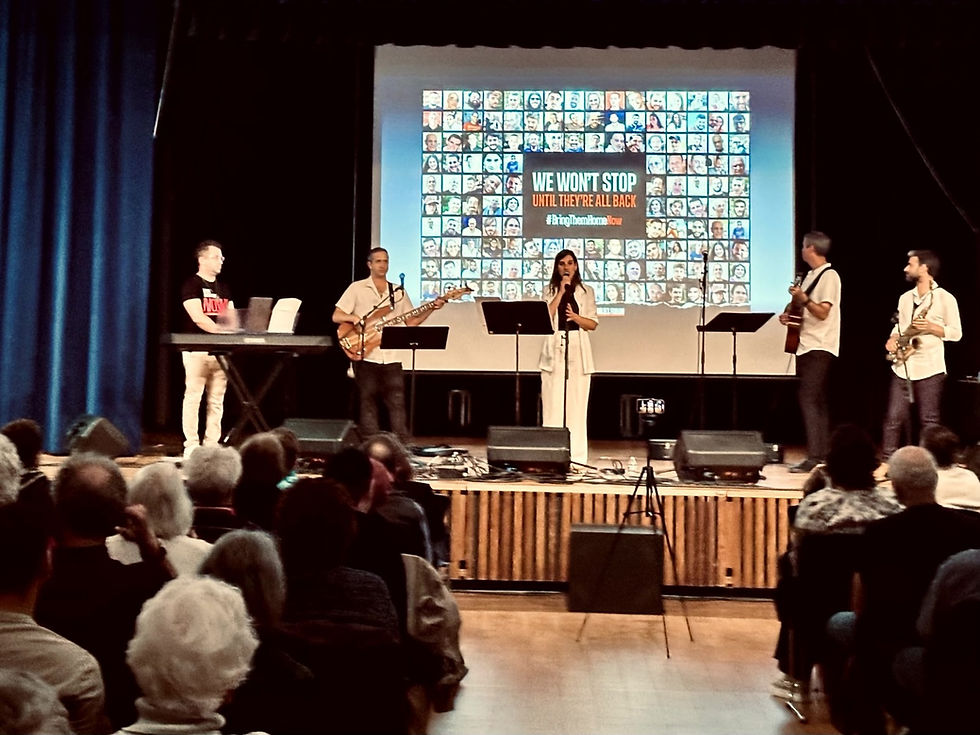A letter from the North, Under Fire
- Mirit Sulema

- Sep 23, 2024
- 3 min read
Updated: Sep 26, 2024

During this past year, we’ve been sleeping with the window open, in our nice pajamas—ones that are presentable in case we run into the neighbors—and with one eye open, always ready for the sirens. Every few days or weeks, the alarm comes. Usually, there are a few loud booms before it, and then it arrives. Within 30 seconds, we have to jump out of bed, run to our child’s room, pick him up (he always wakes up), and run while hearing very loud booms, to the hallway, where our safe room is. It’s more than 30 seconds from our bedroom. We’ve never made it in time.

In recent days, the situation has changed. It’s no longer the case that “maybe there will be an alarm at night.” Now schools are canceled, and there are alarms every day, in some communities several times a day. It’s no longer just the story of towns on the border like Kiryat Shmona. We can no longer find comfort in the feeling that the rockets are far away from us. The booms, the planes, and helicopters are circling right above us—this is what we hear, even when there isn’t an alarm. This morning, me and my son woke up at 5:45 because there’s no routine when preschools (and all other schools) are cancelled. Instead of hearing the birds chirping, he heard a loud boom and a plane flying overhead. Yes, he’s only a year and a half old, but he’s been through enough to already be unsure if there will be birds chirping in the morning.

This afternoon, we received a message in the WhatsApp group of Dror Israel’s Educators' Kibbutz in Akko: “One of the junior counselors has been sleeping with his family and a few other families in the neighborhood shelter for a few days. He forgot his emergency activity kit and wants to run activities for the kids in the shelter like he learned in the training course this summer. Can someone bring him an emergency kit?”
One of the educators immediately volunteered.
The news tells us that schools are cancelled, and it’s forbidden to hold educational activities. But our participants, especially those without a safe room at home, are moving into neighborhood shelters. And there, people have to sleep away from home, together on mattresses, and have to find a way to keep the kids entertained. At least there, they know they will be safe. If we’ve managed to train teenagers who feel responsible not only for themselves, not only for their families, but for their communities—teenagers who are looking for ways to help, to be leaders and role models in this impossible situation—then we’ve done something right.
We are not without hope. People in the north have waited a whole year for the State of Israel to do what’s necessary to help northern residents return to their homes and to assure those of us who stayed that we can live our lives in safety. We have patience for this battle, we have patience for the sirens, for the booms, for the Air Force planes. We have patience to be at home with the children, as long as we know that our country is doing what it takes to restore our security. We have a lot of patience to continue educating the children, to be with them in the shelters, in the neighborhoods, in the homes, in the buildings, in the kibbutzim, in the Arab villages, in the cities, to continue giving them hope that, when we are together, everything is better.
With prayers for peace,
Mirit Sulema



Comentarios